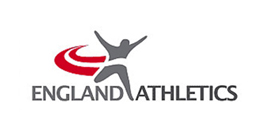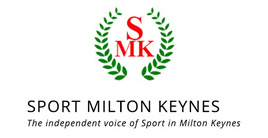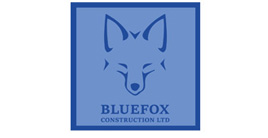- Posted March 16, 2022
We talk to Jenny Nesbitt about her recent incredible PB and her aims for this year
We caught up with Jenny Nesbitt in the latest in our series of interviews with distance runners. Jenny Nesbitt races over distances up to half marathons. She’s finishing a masters in Sports Broadcast at Cardiff Metropolitan University and training hard, hoping to make her second GB Commonwealth team in 2022. Here are some of Jenny’s top sporting achievements:
2021 European Cross – 10th place/Team gold
2019 Inter-Counties Cross Country Champion
2018 Gold Coast Commonwealth Games representative
BUCS 10,000m record-holder
Hi Jenny, thanks so much for agreeing to chat to us. First of all, congratulations on your massive new 13-second 5k PB of 15:19, which is a Commonwealth and European standard. That’s fabulous! How did you feel when you achieved this?
Over the moon, and relieved! It has been a long time coming. I got very frustrated last year trying to run the standard in domestic races, and eventually I ran out of races and out of the mental capacity to really manage. I put in some really hard training over the winter while racing cross country, and when the opportunity arose to run a 5,000m in Boston, I grabbed it with both hands. So, yes, I’m delighted to have achieved the standard and to be one step closer to representing Wales at the Commonwealth Games!
You’ve had some great races recently: In the New Balance Indoor GP on 7 February, you ran a SB in the 1,500m of 4:23; in Dublin in December you raced for GB&NI at the European XC Champs, where you came 10th in your race – 10th in Europe! How did it feel?
I feel like, for the first time in my life, I have put together a string of consistent performances. I was particularly proud of the 10th place at Euro Cross, as that had been a goal for many years. To follow this up with 8:44 indoors the week after really brought home to me that I was in a good place, and it opened up some opportunities to me for the indoor season. The NB grand prix was a lot of fun and exposed me to a completely different racing scene, which I hope to be involved with more often going forward.
You’re currently in Flagstaff, Arizona. Could you tell us about the benefits of altitude training? What does it achieve that training in the UK can’t?
Flagstaff is 7,000m above sea level, so it’s a fantastic place to train at altitude. There are many benefits to training at altitude for distance runners, such as increased red blood cells, which can help to improve your performance when you return to sea level. It is tough training at altitude, but I love a training camp and the focus you can put into it when you’re away from other distractions.
What are your ambitions for this year? The longer term?
This year I really want to qualify for my second Commonwealth Games. Since it’s in Birmingham, and I grew up in Worcester, it’s as close to a home games I will ever get in my life, so I’d like the opportunity to compete there and be in the shape of my life. I would also like to run under 15:10 for the 5,000m, and possibly race at the European Championships.
Your coach is Chris Jones; previously you were coached by David Walker. What influence have your coaches had on you?
Chris Jones is like a second dad to me! He’s really looked after me as an athlete and as a person over the past five years. He has also been very patient with me, and hasn’t given up on me. I think it’s so important to have a coach who really believes in you, and Chris really does.
Dave Walker nurtured me as a young athlete, during which time I went through many health complications, and I believe that, if it hadn’t been for him, I might not have continued running into my senior years – so I owe a lot to Dave.
What’s the best piece of advice you can give young athletes? What do you wish you had been told as a teen?
ENJOY IT! If you don’t enjoy the process of training and racing and the lifestyle that comes with running, then don’t bother. There’s no point pursuing something if you don’t look forward to doing it! As a teen, I wish I had been told that there was no need to rush the process, and that really no one cares until you’re a senior athlete.
What does your typical day look like?
Get up about 8am, go for a run, eat breakfast, work (I work for Welsh Athletics doing their media and comms), run again in the afternoon, eat dinner, then go to bed!
I see from Instagram that you’re a fan of motivational sayings: ‘Trust in the process and look after yourself before anything else’, ‘The only way to do great work is to love what you do’ and ‘Perseverance is not a long race. It’s many short races one after the other’. Which is your favourite saying, and why?
Yes, I’m a bit of a sucker for quotes – I actually have a book full of them. My favourite quote is ‘Success is not final, failure is not fatal; it’s the courage to continue that counts’.
You’re going out with Oli Lum, an ex-MKDP athlete – do you train together and travel together? How does that work?
Yes! Oli has been fantastic to me – really supported my training and goals and helped me so much over the past few months. He helps pace me on a lot of my sessions, and he was a massive contributing factor to my 8:44 race just before Christmas. He’s actually coming out to Flagstaff in a couple of weeks to help me while I’m out here too.
On Insta, you talk a lot about learning – is this new for you? What’s the most important thing you’ve learned recently?
I think I have finally bought into what I have learned. I don’t necessarily think I have learned anything new recently, but I have learned what works for me. I now believe in what I’m doing and understand the process, which has helped me to implement it into my training. Most importantly, I’ve learned that running slow helps you run faster!
Some quick questions...
What’s your favourite race distance?
5,000m.
Your hero?
My competitors.
Which do you prefer, XC or track?
Track.
Your favourite song to train to?
‘I believe’ by Yolanda Adams.
The achievement you’re proudest of?
I think returning to running after being critically ill is the achievement I’m most proud of.
You were bed-bound with chronic fatigue syndrome (CFS) when you were only 17. That sounds very hard to deal with, especially at such a young age. How has this affected you?
It was awful. I still think back to that time and get shivers. It certainly impacted the rest of my life. I think the biggest impact it had was that I have to grasp every opportunity I get and that you only get one life, so you have to make the most of it. I think it helped me to throw everything I have into running, with the knowledge that I will never be given this opportunity again.
I know sleep is very important to you. Tell us why.
Very important! I think after having CFS, I consider it even more important. I’m also fully aware of the impact it can have on training and racing and recovery. You can run all the miles you want, but if you don’t recover you won’t improve!
Jenny, thank you so much for speaking to us. We wish you the very best for this season, and hope you achieve all your aims. We will be cheering you on!
Follow Jenny on Instagram – jennynesbitt1 – and Twitter @jennynesbitt
Photo © Paul Bannister
Interview © Jane Hammett, MK Distance Project





